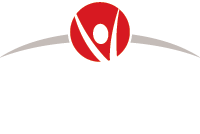Individual Education Plans (IEPs)
The JSA curriculum offers flexibility for teachers to tailor their teaching in ways that provide rigorous, relevant and engaging learning and assessment opportunities for all students. Students will engage with the curriculum with the necessary adjustments made to the curriculum content and how students demonstrate their knowledge, skills and understanding. Each student’s individual characteristics will dictate the type of adjustments, what supports are required, when they are required and what good progress ‘looks like’. High expectations ensure that a student’s disability is not a barrier to their success.
The IEP process provides a structure for ensuring all students are engaged in the classroom curriculum; they will:
- sit within whole-school curriculum planning
- link to a student’s learning goals developed by the SSG
- include age-appropriate learning activities and assessment tasks
- allow for alternative learning pathways for demonstrating achievement
- include suggested home activities, if appropriate
- identify next steps in a student’s learning
- have agreed dates for ongoing monitoring and review, through the SSG process.
IEP goals will include the Learning Areas:
- English, Maths, Critical & Creative Thinking and Personal & Social Capabilities
- Specialist subject areas: Visual Arts, Health & PE and Music.
Assessment
Assessment is the ongoing process of gathering, analysing and interpreting, using and reflecting on evidence to make informed and consistent judgements to improve future student learning.
Assessment at JSA will aim to:
- improve student performance
- understanding of how students learn
- be an integral component of course design and not something to add afterward
- provide useful information to report to parents on student achievement
- provide clarity of purpose, goals, standards and criteria
- provide a variety of measures
- use valid, reliable and consistent methods
- focus to outcomes and processes
- be ongoing rather than episodic
- involve feedback and reflection.
To assess student performance, JSA will use an integrated approach to assessment across a number of learning areas. In assessing students, teachers will:
- collect a variety of evidence through using a range of strategies
- consider alternative or authentic ways in which students can demonstrate achievement based on the goals developed in their IEP.
The Abilities Based Learning and Education Support (ABLES) program will be completed for all students during Semester 2 of each year. ABLES will be used to describe skills and abilities that teachers have observed in everyday school and classroom contexts and during interactions with other students; moderation will be completed to support the accuracy of the assessments. ABLES provides a tool to effectively assess, monitor and respond to a student’s abilities by:
- Accurately identifying and setting learning goals for students.
- Tracking a student’s progress over time, and providing new information to parents on their child’s learning and development.
- Identifying optimal resources that are known to improve learning, which can be adjusted as the learning needs of students change over time.
Reporting Student Achievement
Reporting is the process of communicating comprehensive information about student achievement and learning at a point in time.
JSA Reports provide parents with a clear picture of their child’s progress at the end of a specified period of time that demonstrates:
- where their child is on the learning continuum
- how well their child is progressing towards expected levels of achievement and personalised learning goals and targets
- where their child will need to improve and what the next steps in their learning will be.
SSG goals and IEPs provide an important focus for reporting to parents. JSA will report what has been taught in the semester and to Individual Education Plans (IEPs).
In reporting student learning progress to parents, JSA teachers will clearly identify the areas of strength and areas for improvement for each individual student. Reporting student achievement to parents will be supported through student work samples, portfolios, parent, student and teacher conferences, and student self-assessment.
Semester 1 Reports will include the Learning Areas:
English, Maths, Visual Arts and/or Music & Dance, Health & Physical Education, Humanities, Technologies, Personal & Social Capabilities and Creative & Critical Thinking Capabilities
Semester 2 Reports will include the Learning Areas:
English, Maths, Visual Arts and/or Music & Dance, Health & Physical Education, Science, Technologies, Personal & Social Capabilities and Creative & Critical Thinking Capabilities
The four-point scale enables JSA Teachers to provide a greater level of detail to parents about their child’s achievement and progress (as below).

